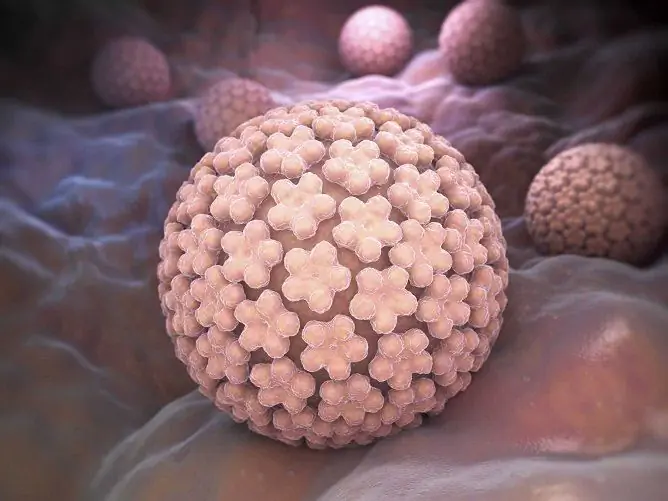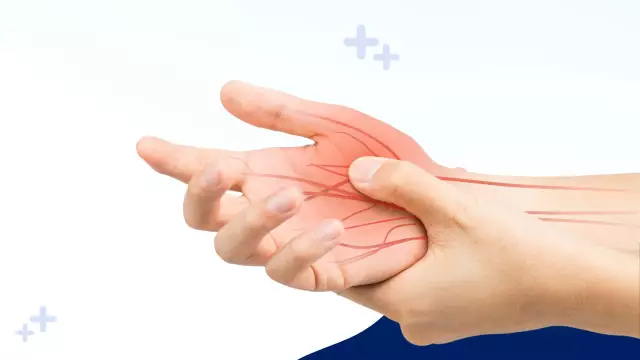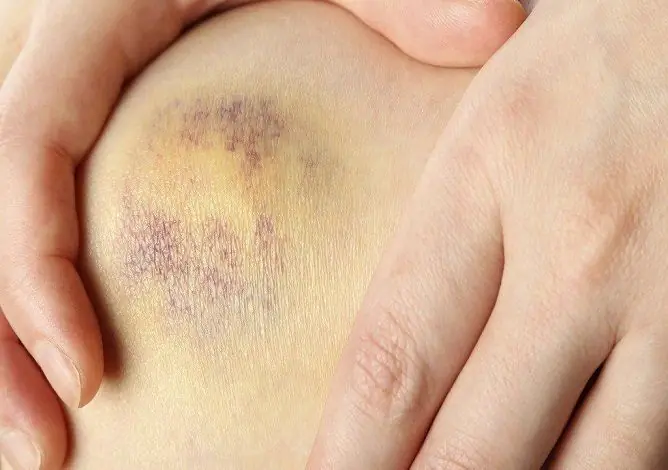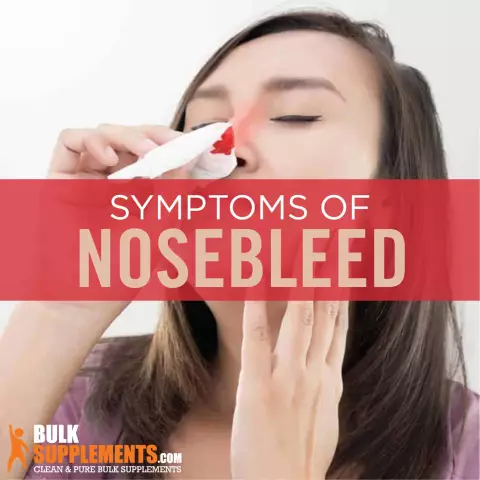- Author Rachel Wainwright wainwright@abchealthonline.com.
- Public 2023-12-15 07:39.
- Last modified 2025-11-02 20:14.
Why does my whole body ache

Often, after excessive physical exertion or in the early stages of exercising in the gym, a person experiences aching pains throughout the body. As a rule, such painful sensations do not last more than a few days and go away on their own after the body gets the necessary rest. However, often the whole body hurts regularly for a long time, which can be a symptom of various rather serious diseases that require immediate treatment.
Why the whole body hurts: the main reasons
As you know, most often pain in the whole body is the body's response to various infectious diseases (may even be the result of pneumonia!), All kinds of injuries and physical overstrain.
Infectious diseases are often accompanied by the following symptoms: the whole body hurts, aching bones and joints, restless sleep, headache, fever. It also happens that in the presence of an infectious process, the temperature, on the contrary, decreases, and the patient experiences malaise in the form of lethargy, unwillingness to move and the release of cold sweat. At the same time, pain throughout the body is often observed with such problems as:
- Various blood diseases (lymphoma, leukemia, etc.);
- The presence of a malignant tumor;
- Autoimmune diseases (such as lupus)
- Connective tissue damage (rheumatoid arthritis);
- Food poisoning;
- Tick bite.
Diseases of the blood and malignant tumors require immediate treatment, so if the body hurts constantly, but there are no symptoms of a cold, it is necessary to undergo an examination as soon as possible.
In autoimmune diseases and connective tissue damage, the pathogenic process inside the joints contributes to the spread of pain to the adjacent muscles. This explains the pain in the whole body, which prevents a person from living a full life.
The characteristic signs of rheumatoid arthritis are pain in the morning after sleep. As a rule, after the patient moves a little, they subside significantly. With osteoarthritis, the body hurts, on the contrary, in the evening.
Food poisoning can also be the answer to the question of why all the muscles in the body hurt. Very often, such ailments are accompanied by such additional symptoms as high fever, general weakness of the body, sharp pains in the lower abdomen. Again, there are cases when the temperature is below normal, the patient experiences chills, cold sweat appears on the body and the whole body hurts.
The bites of certain ticks, which are carriers of an infectious disease, can also provoke aching pains throughout the body. Determining the cause of the disease in this case is not difficult: as a rule, after such a bite, a rash appears in the form of small bubbles with a transparent liquid inside. In addition, reddening of the skin is often observed not only at the site of the bite, but also on other parts of the body.
Thus, if the body hurts constantly, you should immediately consult a doctor. Indeed, in addition to the fact that this symptom may indicate the presence of various diseases, it can often lead to the following problems:
- Severe chronic pain followed by moderate pain;
- Fatigue;
- Insomnia;
- Weakening of the human immune system;
- Forced refusal to be active;
- Stress and mood swings;
- Other psychological problems (increased irritability, anxiety, unexplained fears, depression, etc.).
Why do all the muscles in the body hurt?
When the whole body hurts regularly, the cause can be, in addition to the aforementioned diseases, also such a common chronic disease as fibromyalgia. Despite the fact that, according to some reports, every tenth person on earth suffers from it, both the disease and its causes are still not fully understood. This is why fibromyalgia is rarely diagnosed.
Nevertheless, this disease can very often explain why the whole body hurts. However, there are no laboratory tests to detect this ailment, so doctors have to rely on specific data from the general examination and the patient's complaints. The diagnosis is also complicated by the fact that the accompanying symptoms of this disease in different patients are completely different. Among the most common signs, in addition to pain throughout the body, are:
- Chronic tiredness
- Sleep disturbance;
- Diffuse pain in ligaments, tendons and muscles.
The following fact is also misleading doctors: some patients complain that the whole body hurts, while others, on the contrary, note specific centers of painful sensations. In this case, the diagnosis in patients is the same.
It is noteworthy that about 80% of those suffering from fibromyalgia are female. Some scientists attribute this to the fact that this disease is provoked by an increase in central sensitivity. Thus, the reasons why the whole body hurts lie in the brain, which changes its functions towards sensitivity. It is not surprising that a decrease in the pain threshold is considered one of the main signs of the disease.
In addition to symptomatic treatment aimed at relieving pain, with such a diagnosis, antidepressants are often prescribed, designed in this case to restore the correct functioning of the brain.
If, when asked why the whole body hurts, the doctor replies that the patient has fibromyalgia, it is necessary first of all to exclude all kinds of stressful situations from his life. Together with this, as a rule, it is recommended:
- Muscle relaxants;
- Non-steroidal anti-inflammatory drugs;
- Hypnotic;
- Anticonvulsants;
- Manual therapy.
When general weakness is observed and the whole body hurts, you should seriously consider strengthening the immune system. Eating foods that are high in vitamins and taking frequent walks in the fresh air are the best ways to combat weakness.
How to deal with pain throughout your body on your own
When the whole body hurts, it is usually accompanied by almost unbearable fatigue. In addition to some medications, exercise can greatly facilitate this condition. Of course, many patients avoid all kinds of physical exertion for fear of increasing pain. But moderate exercise, on the other hand, helps relieve pain and muscle stiffness.

When the patient is tormented by general weakness and the whole body hurts, regular exercise can eliminate these symptoms: during exercise, the body releases endorphins, which are a natural pain reliever.
Don't forget about effective relaxation techniques. When the whole body is in pain, breathing exercises and deep relaxation of the muscles can reduce pain quite quickly.
Alternative treatments include:
- Acupuncture;
- Deep tissue massage;
- Neuromuscular massage.
Nevertheless, when the whole body hurts, you should seek the help of a specialist, identify their cause, and only then start treatment.
YouTube video related to the article:
Found a mistake in the text? Select it and press Ctrl + Enter.






